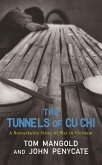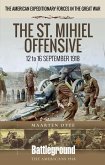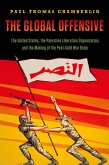A history of the military campaign that set the stage for the end of the Vietnam War. By the end of 1971, in what Hanoi called the American War and at the height of the Cold War, the fighting had dragged on for eight years with neither side gaining a decisive advantage on the battlefield and talks in Paris to the end the war were going nowhere. While the United States was steadily drawing down its ground forces in South Vietnam, Washington was also engaging in a grand effort to build up and strengthen Saigon's armed forces to the point of self-sufficiency. Not only had the ranks of Saigon's forces swelled in recent years, but they were now being equipped and trained to use the latest American military equipment. Perhaps now was the time for Hanoi to take one last gamble before it was too late. With the rumble of men and mechanized equipment breaking the early morning silence, some 40,000 North Vietnamese troops advanced across the demilitarized zone into South Vietnam on March 30, 1972, in what would become the largest conventional attack of the war. Ill-prepared and poorly led, South Vietnamese troops in the far north were quickly routed in the face of the ensuing onslaught. Likewise, coordinated attacks across the Cambodian border northwest of Saigon and into the central highlands in the coming weeks gained steam and in due course as many as 200,000 men along with T-54/55 main battle tanks, 130mm towed artillery, ZSU-57 self-propelled ant-aircraft guns, and hundreds of trucks and armored personnel carriers were engaged across three battlefronts. Soon Saigon's beleaguered forces were being pushed to the brink of defeat in what appeared to be the end for the Thieu government. Ultimately, however, the timely and massive intervention by U.S. and South Vietnamese air power, along with the bravery of some South Vietnamese commanders and their American advisers saved the day. Hanoi's gamble had failed and, in its wake, lay up to 100,000 dead and South Vietnamese roads littered with the smoldering wrecks of North Vietnamese military equipment. Moreover, it would be another three years before the North had recovered enough to try again. "Informatively presents an episode of the Vietnam War that has otherwise lapsed into obscurity, crowed out of the history books by North Vietnam's ultimate victory against the U.S. and South Vietnamese military." -Midwest Book Review "The lessons from Hanoi's military victory, which are discussed in this book, still echo in today's U.S. military intervention in Afghanistan, so this book's account is especially pertinent in understanding the current predicaments facing the U.S. in that troubled country." -Journal of Counterterrorism & Homeland Security International
Dieser Download kann aus rechtlichen Gründen nur mit Rechnungsadresse in A, B, BG, CY, CZ, D, DK, EW, E, FIN, F, GR, HR, H, IRL, I, LT, L, LR, M, NL, PL, P, R, S, SLO, SK ausgeliefert werden.









